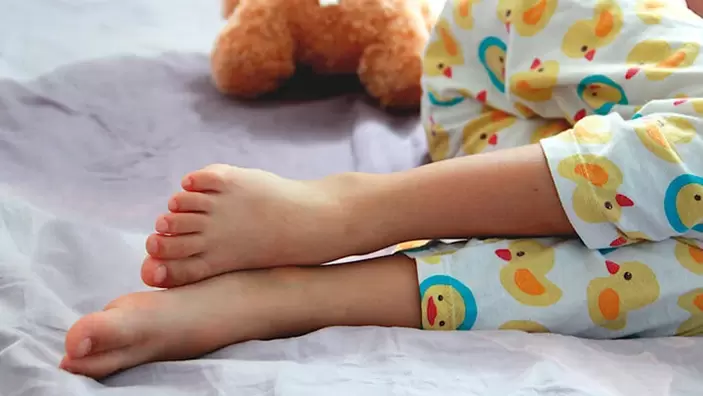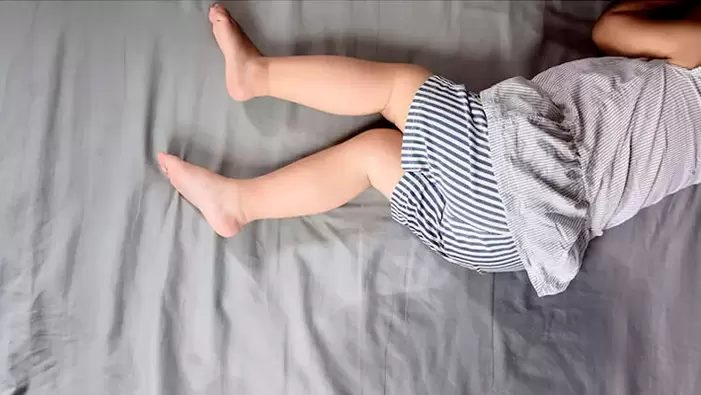Enureis is a pathology in which a person is unable to control the emptying of the bladder. In the vast majority of cases (more than 95%) we are talking about baby enuree when urination control is not yet fully formed. However, the disease is also found in adults (especially the elderly) when the ability to control bladder emptying is already lost.
The problem of involuntary urination occurs mainly at night when a person sleeps (up to 80% of all cases). Much more often this happens during wakefulness.
There is no accurate information about the spread of this disease, as the parents always see the doctor for this. According to reports, among children at the age of 5, enuresis occurs in 5-10% of cases; Among the 10-year-olds in 3-5%; Among the 15-year-olds and older (enuresis of adults and adolescents) -1%. Type
Type
Enureis is classified according to different parameters. Depending on the root cause of the disease, distinguish:
Primary Enrese. According to statistics, it represents more than 90% of cases among children under 5 years of age. The characteristic of the primary enrese is the lack of any neurological or urological pathologies, against which one can develop urinary incontinence. With this form of disease, the child has no long periods (from 3 to 6 months) when he wakes up dry. With age, the proportion of primary enuresis in the frequency structure is reduced. For example, in children 12 years and more, about 50%report this.Secondary Enrese. This type of pathology is also called repetitive as it reappears after a long period of remission. In this case, it has to do with some urological, endocrine or neurological diseases that can contribute to involuntary urination. It should be noted that this variety of the problem may first occur after the child reaches control over urination (however, not early 6 months later). Depending on the time of manifestation, the disease may be the following types:
The Night of Enreza. This is the most common version of the disease that occurs at night. It is estimated that night incontinence of the urine may be associated with the late ripening of the bladder in a child or small volume. Hormonal causes are also possible - for example, low vasopressin levels. It is a hormone that holds moisture in the body. The disease can also be associated with very strong sleep in a child and difficulty awaken.Daily Enrese. This form of disease is much more common. It is characterized by the fact that patients have problems control over urination during the day.Depending on the accompanying diseases and complications of enuresis, this happens:
Uncomplicated. In this case, the patient has no pathological changes provoked by urinary incontinence.Complex. This form of the disease is discussed when the background of other disorders is started. For example, these are infections or abnormalities in the development of the urinary system, nerve and other pathologies.Prevention of EnorezParents may recommend some preventative measures that help prevent the onset of the disease. Such events include:
Timely treatment of urinary tract infections;Control over the volume of the fluid consumed by the child during the day, but in this case it is worth considering the season and the air temperature;Sanitary and hygienic education of the baby. This implies teaching hygiene care for the genitals;Timely rejection of diapers. Often, diapers completely stop using when the child is two years old;If the episodes of urinary incontinence continue at night by the child to reach six years, it is necessary to take measures to complete the baby's overall examination, establishing the cause of the disease and his or her treatment.The causes of the development of the diseaseThe reason for the development of enuresis is unknown. In this regard, experts present various theories, each of which has a number of indirect evidence and is generally taken into account in treatment. Think of these theories more detailed:
Disruption of ripening. Inadvertent urination at night or day is thought to be linked to a delay in the development of the person's nervous system. In addition, these disorders can be both organic and psychogenic. In the first case, we are talking about a direct lesion of some structures of the brain, spinal cord or peripheral nerves (for example, due to infection). Psychogenic factors can be emotional shocks, traumatic experiences and more. Heredity. According to some observations, the likelihood of developing the disease is higher if the child's parents also suffer from the disease at one time. Due to the delicacy of this problem, it is quite difficult to identify such a model.Hormonal theory. A possible cause of night enuresis is a violation of vasopressin secretion. This hormone holds water in the body and its production increases at night. For this reason, a healthy person during sleep is quite rarely worried about urination. If the child has reduced the production of hormones at night, it contributes to the development of enuresis. It must be said that such a hormonal imbalance is observed in some pathologies, for example, not -non -partial diabetes.Stress. It is not yet clear where the chicken is and where the egg is. According to observations, many children with urinary incontinence have stress and other mental factors. For example, unexplained fears, low self -esteem and more. At the same time, when the problem of enuresis is solved, the patient's mental state is often improved. Therefore, it is possible to incite and serve as a factor in a person's unstable mental state.The above theories are mainly related to children. As for the adult enuresis, the following disorders and circumstances act here adverse factors:
Nervous system pathology, for example, stroke, spinal cord damage, neurogenic bladder and others; Diseases of the urinary system, including renal failure, prostate pathology, reduction of tone of pelvic floor muscles, frequent urinary tract infections and other diseases;Pregnancy, because in this condition the strong pressure from the uterus (especially with a large size of the fetus and/or its active movement) is on the bladder.This problem can also be provoked by taking some medicines, such as contraceptives.Symptoms of the disease
The main symptom of a parish is involuntary urination. Most often it happens at night, but it also happens during the day (during wakefulness). The following symptoms are also possible against the background of urinary incontinence:
shyness;Closing;Cruck complexity;emotional instability;Aggressive behavior (in rare cases).Adult enuresis can be accompanied by frequent urination (often in the background of some diseases). Due to the weakness of the pelvic floor muscles (which develops with age), the leakage of urine during sudden movements, coughing and even at rest.Complications
There are two main groups of complications with Enrese:
Complications from the psyche and nervous system. Most of all, this applies to children. The child feels more, closed. Some aspects of children's lives become inaccessible, for example, travel to camps. Adult enuresis can also cause similar problems. All this is a serious factor in the development of anxiety and depression.Complications from the urinary system. The risk of infectious and inflammatory diseases of the urinary tract increases. These are cystitis, urethritis, prostatitis and other pathologies that are manifested by painful urination, atypical discharge from the urethra, as well as pain in the crotch and lumbar region. DiagnosticsIt is initially recommended to contact a pediatrician (if we are talking about a child) or a therapist. After the initial examination and examination, the doctor may direct the patient to narrow the specialists - a urologist, nephrologist, psychiatrist or neurologist.
The diagnosis generally includes the following events:
study and neurological examination;Ultrasound of the kidneys and bladder;General urine analysis as well as Nechiporenko analysis;X -Ray of the lumbar region.In rare cases, the patient is directed to other studies, such as CT or MRI.Parcel
The treatment with Enorez is exhaustive. Consider the main components of such therapy:
Treatment with medicines. Medicines are prescribed that reduce the volume of urine produced. This is analogues of the hormone vasopressin. The dose and administration regimen is chosen so that moisture mainly lingers at night (if we talk about night enuresis).The way we take fluid and nutrition. The doctor will make recommendations on the use of fluid and power system. In this case, it is necessary to take into account the nutritional diet of a child or adult, the level of their physical activity, the presence of concomitant diseases and a number of other factors. In particular, it is recommended to abandon the use of caffeine -containing beverages as they improve diuresis and help to take additional fluid. If the patient is exercising (which means that he is actively sweating), then let's accept the intake of the increased volume of the fluid. Alarm clock. At the beginning of the last century, a special Enuremary alarmist was developed for the treatment of Enorez. The first such alarms worked on the principle of closing the circuit when the first drop of urine appeared. At the same time, the patient is irritated by a small electrical discharge, which is why the person wakes up. Modern alarm watches are acoustic and are equipped with a sensitive moisture sensor. The most common option is a clip that is attached to underwear. As the first drop of urine enters the sensor, the alarm clock works. The task of this treatment is the formation of the reflex "the desire for urination - awakening". There are also special sheets with sensors, but unlike a clip alarm clip, in which case the signal is triggered later when the urine flow is already reaches the leaves. The effectiveness of the treatment of nightly monosymptomatic enuresis with the use of a wicker alarm clock is about 70-80%.Depending on the accompanying disorders, the treatment of enuresis can also be taken by the correction of mental or neurotic disorders. The complex treatment of this problem also provides sessions with a psychologist. At the same time, it would not hurt to consult the specialist and the parents of the child. The psychologist will tell you how to properly motivate the children so that they can complete all the doctor's instructions to control the urination. The punishment of the child or the formation of an unfavorable emotional environment in the family (due to urinary incontinence) is unacceptable and will only make the situation worse. Rehabilitation
As a rule, in children, this pathology occurs after treatment or independently, which cannot be said about enuresis in adults (as it occurs against the background of certain chronic diseases). As such, rehabilitation is not required after treatment. In some cases, the child needs hours with a psychologist or psychotherapist who will help him or her socialize if the patient has previously experienced certain difficulties in psychological nature.Prevention
There are no specific measures to prevent enuresis. It is important for parents to join the solution to the problem in the early stages without waiting for the disease to pass on its own. As for adults, this can be preventative measures in this case:
Timely treatment of bladder diseases and other urological pathologies;active lifestyle;Preventive examinations in the doctor, especially after 45 years.



















